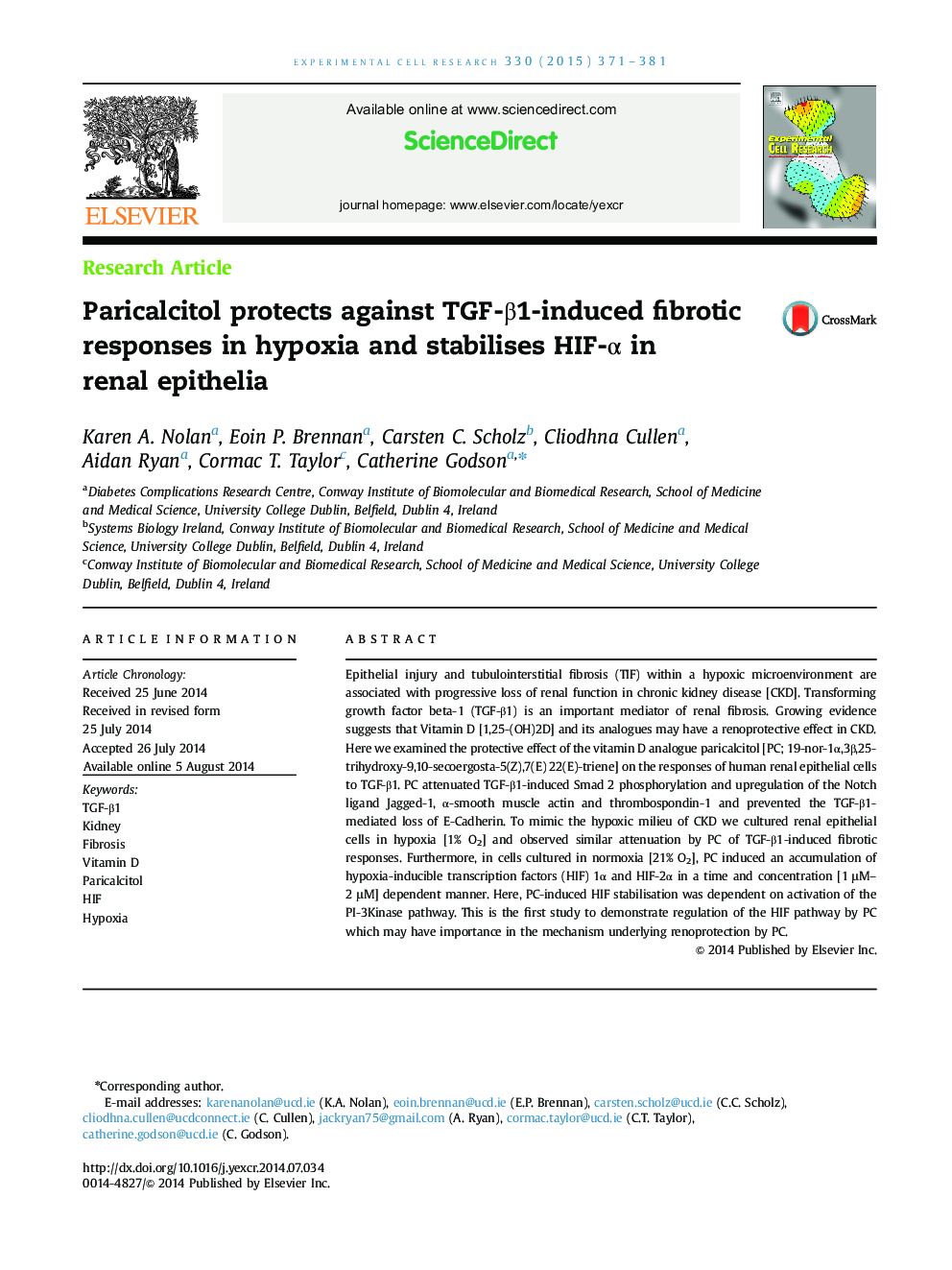| Article ID | Journal | Published Year | Pages | File Type |
|---|---|---|---|---|
| 8452441 | Experimental Cell Research | 2015 | 11 Pages |
Abstract
Epithelial injury and tubulointerstitial fibrosis (TIF) within a hypoxic microenvironment are associated with progressive loss of renal function in chronic kidney disease [CKD]. Transforming growth factor beta-1 (TGF-β1) is an important mediator of renal fibrosis. Growing evidence suggests that Vitamin D [1,25-(OH)2D] and its analogues may have a renoprotective effect in CKD. Here we examined the protective effect of the vitamin D analogue paricalcitol [PC; 19-nor-1α,3β,25-trihydroxy-9,10-secoergosta-5(Z),7(E) 22(E)-triene] on the responses of human renal epithelial cells to TGF-β1. PC attenuated TGF-β1-induced Smad 2 phosphorylation and upregulation of the Notch ligand Jagged-1, α-smooth muscle actin and thrombospondin-1 and prevented the TGF-β1-mediated loss of E-Cadherin. To mimic the hypoxic milieu of CKD we cultured renal epithelial cells in hypoxia [1% O2] and observed similar attenuation by PC of TGF-β1-induced fibrotic responses. Furthermore, in cells cultured in normoxia [21% O2], PC induced an accumulation of hypoxia-inducible transcription factors (HIF) 1α and HIF-2α in a time and concentration [1 µM-2 µM] dependent manner. Here, PC-induced HIF stabilisation was dependent on activation of the PI-3Kinase pathway. This is the first study to demonstrate regulation of the HIF pathway by PC which may have importance in the mechanism underlying renoprotection by PC.
Related Topics
Life Sciences
Biochemistry, Genetics and Molecular Biology
Cancer Research
Authors
Karen A. Nolan, Eoin P. Brennan, Carsten C. Scholz, Cliodhna Cullen, Aidan Ryan, Cormac T. Taylor, Catherine Godson,
